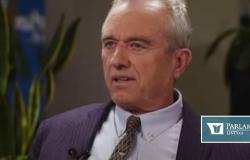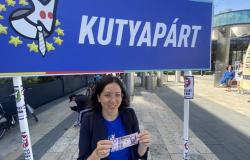Before he and his colleague Amos Tversky really got down to business, economics was convinced that it was basically sufficient with mathematical apparatus, sophisticated formulas and trust in human rationality.
I will reassure my fellow economists who carefully study the history of economic theories: Yes, I am aware of this simplification to the core. And I intend to continue it because it is illustrative.
In other words, to put it simply, but actually quite precisely: Quite often, however, formulas and mathematical apparatus delivered significantly different results than what reality allowed itself to present. Which was unpleasant and led to a series of very sophisticated explanations as to why it didn’t quite work out this time (again). And then Daniel Kahneman and Amos Tversky came up with an explanation valid for all cases at once.
It was simple: The error is not in the formulas. The error is not even in the mathematical apparatus. The fault lies in man.
That a man economic, homo oeconomicus, does not really exist, this was of course known even without Kahneman and Tversky. After all, it was created as a theoretical thought concept, and there has never been a single specimen of this one hundred percent rational creature, who always thinks only of higher profit, higher efficiency, and his dreams also concern added value. And above all, a creature that is able to act in this way, regardless of circumstances and pressures or time constraints, to optimally evaluate options and choose the one that brings the highest benefits.
The so-called economic mainstream, despite the knowledge that it invented the economic man, still believed that, based on the idea of him, it was possible to work with a variant of maximally rational human behavior within the framework of the models. So the theory of rational choice randomly assumed that if a person evaluates the potential of gain and loss, he acts in a balanced way. People say that they measure profit and loss with the same yardstick. Until behavioral economics came, which brought back into consideration the principled doubt about the rationality of human knowledge. What’s more, this uncertainty was based on experiments that showed that although a person can approach problems, situations and life as a whole very rationally and pursue even extraordinarily (calmly to the point of disgusting) rational goals, for many reasons they don’t need to be rational and almost never are will not behave. Perhaps because the aversion to loss is higher than the desire for profit. Or also that people distinguish money according to the way they got it. Typically: A person who wins an amount equal to his monthly income in the lottery spends it on quite unnecessary things. But when he receives a one-time extraordinary reward at work equal to his monthly income, he will have a much greater tendency to include it in savings. An economic person should not distinguish money according to the method of acquisition, but always deal with it rationally. Well, the bug crept in and a normal person behaves in his own way.
That someone moved the economy to a new level is said of a number of great thinkers. The 2002 Nobel laureate Daniel Kahneman, who died on March 27, pushed human cognition to a new level. He proved that we are not nearly as perfect (if we want to consider rationality as part of perfection) as we like to think. Together with his companion Amos Tversky (he died in 1996, otherwise he would certainly have won the Nobel Prize as well) Kahneman demonstrated that, in addition to the inability to grasp the full complexity of the matter, we are subject to strange influences in our decision-making, which are often irrational and, on top of that, often have nothing to do with the topic of the decision-making process nothing in common.
One of the researches based on his and Tversky’s theories, for example, showed that American judges deciding on custody are stricter with the accused during the time of hunger before the lunch break of the court, then they set the most lenient meter during the happy period after lunch.
And then we wonder what our world looks like.






